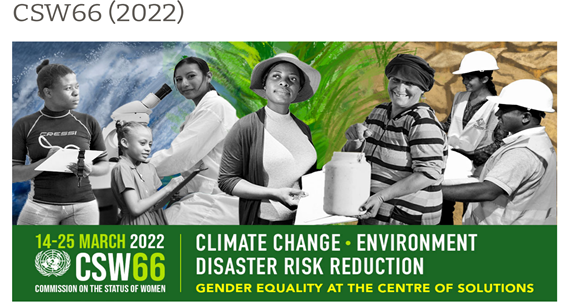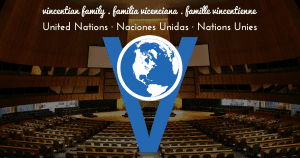The 66th Session of the Commission on the Status of Women is almost concluding its hybrid format meetings on March 25, had the following as its priority theme: “Achieving gender equality and the empowerment of all women and girls in the context of Climate Change, environmental and disaster risk reduction policies and programs.” Studies have shown that it is women and girls who are disproportionately affected by climate change. According to UN reports 80 per cent of people displaced by climate change are women. Their role as primary caregivers and providers of food and fuel make them far more vulnerable to droughts and floods. Women play little or no role in policy making, for they are seldom given a seat at the table and since most of them live in poverty, they have no access to finances to recover from natural or human made disasters, which affect their jobs and housing. The interlinkages between poverty and gender inequality exasperate women’s vulnerabilities.

We have also learned, especially from COVID-19 pandemic experience, that women play indispensable role in any kind of risk reduction, be it a health crisis, climate change, environmental concerns and disasters. They are our frontline defenders, both in the public sphere and on the home front. Yet their contributions are always overlooked or negated, because it is unpaid care work.
The agreed conclusions of CSW66 recognizes that “gender inequality coupled with climate and environmental crises and disasters are the greatest sustainable development challenges of our time, affecting the entire planet all peoples, with disproportionate impacts on women and girls, especially those in vulnerable and marginalized situations and conflict settings.”
Other concerns raised in it are, “that climate, environmental crises and disasters threaten the full realization of human rights, especially the rights to life and dignity, development, a life free from violence and discrimination, an adequate standard of living, the highest attainable standard of physical and mental health, water and sanitation, a healthy environment and others, with acute impacts on women and girls, especially in rural, indigenous and migrant contexts. The economic and social fallout of the coronavirus pandemic has compounded the impacts of the climate and environment crises and pushed people further behind and into extreme poverty and women and girls disproportionately so.”
It also emphasizes the need for “legal and policy frameworks on climate change, environmental and disaster risk reduction should provide a cohesive basis for gender-responsive governance that fulfils the rights and needs of women and girls. Their capacity to build a resilient future depends on removing structural barriers and gender gaps and strengthening women’s and especially indigenous women’s access to and control over land and natural resources; their participation and leadership for making climate, environmental and disaster risk action more effective.”
Although women and girls are in the forefront to inspire and lead actions on climate change and environmental issues, and making significant contributions, their participation and leadership fall short of influencing decisions and policies; for they as well as civil society face many barriers to participation and leadership because of the shrinking democratic space and diminishing funding.
The Commission is urging governments at all levels and all stakeholders to take:
- Promote and protect the right of women and girls to a safe, clean, healthy and sustainable environment and adopt policies for the enjoyment of this right;
- Recognize the impacts of climate and environmental crises and disasters on women and girls in conflict and crisis affected settings and integrate genders perspectives into climate and security mechanisms and programing;
- Ensure the full, equal and meaningful participation and leadership of women at all levels of climate change, environmental and disaster risk reduction governance…
- Leverage the participation and influence of women in managing the conservation and sustainable use of natural resources…
- Increase investment in gender-responsive climate change and in environmental and disaster risk reduction policies and programs…
- Promote lifelong learning, training and education, including in science and technology, engineering and mathematics for women and girls…
- Prevent and respond to violence against women and girls in contexts of climate and environmental crises and disaster…
- Promote and protect the rights of women environmental and human rights defenders and ensure that violations and abuses against them are investigated and that those responsible are held accountable…
- Invest in gender responsive public services, universal social protection, health and care systems and sustainable transport and infrastructure to reduce unpaid care and domestic work of women and girls, increase paid decent work for women …
- Promote the equal access of women to decent work in green and blue economic sectors, such as sustainable energy, fisheries, forestry and agroecology…
As Vincentians, we need to study these recommendations to incorporate them into our own programs to ensure gender equality and women empowerment are integral to all the action we initiate on climate change, environmental crisis and disaster risk reduction.
Teresa Kotturan SCN
NGO Representative at the UN
Sisters of Charity Federation






0 Comments